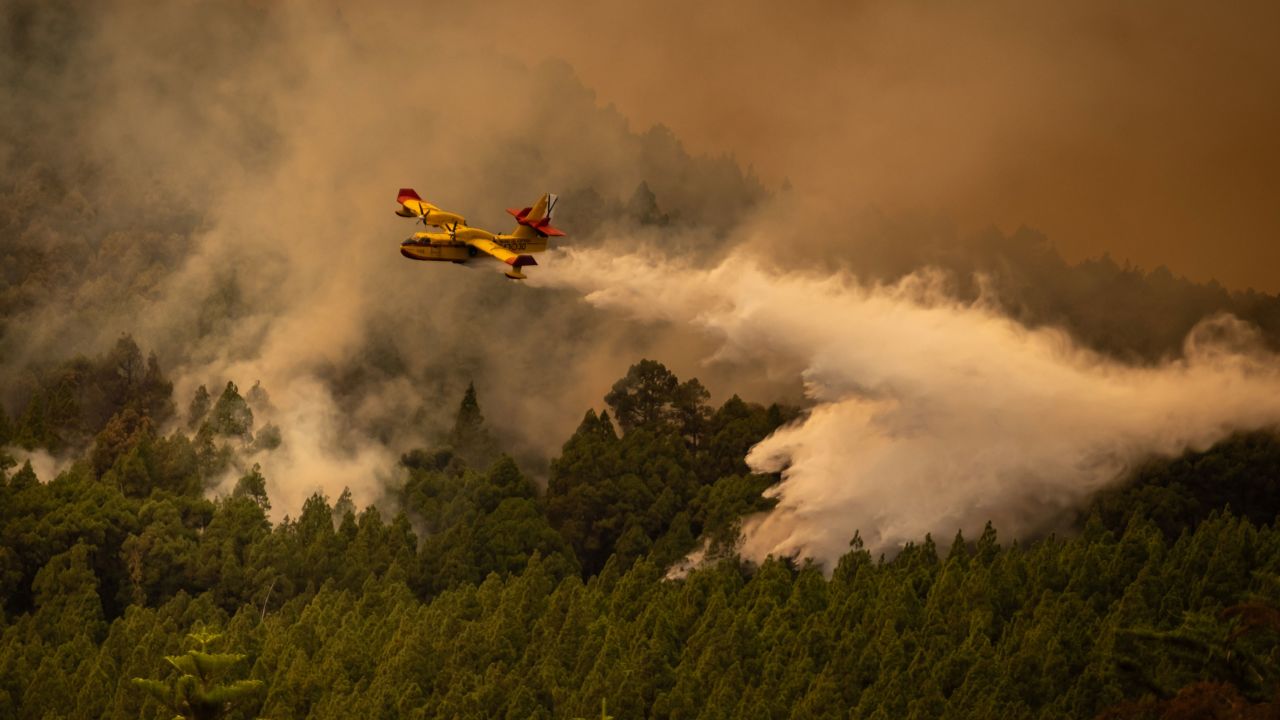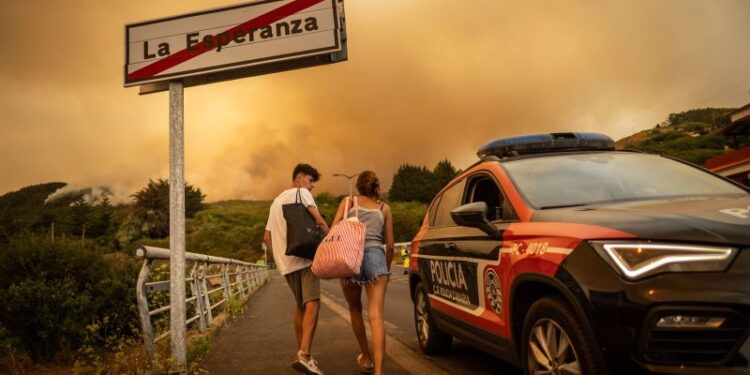CNN
—
More than 3,000 people have been evacuated since Wednesday as wildfires continue to tear through the Spanish Canary Island of Tenerife, a popular tourist destination, the region’s authorities said Thursday in a statement.
The blaze has burned some 2,600 hectares (around 6,424 acres) so far and the region’s leader Fernando Clavijo said Wednesday night that the fires were burning “out of control.” He said on Thursday that more evacuations haven’t been ruled out.
“It is probably the most complicated fire that we have had on the Canary Islands in the last 40 years,” Clavijo told journalists at a press conference on Thursday, according to local media.
More than 370 personnel and 17 firefighting aircraft have been deployed to control the blaze, a statement from regional authority said Thursday.
Tenerife was especially hot over the weekend and into the first part of this week with temperatures ranging in the mid-30 degrees Celsius, which above average for this time of year.
Wildfires has raged in numerous parts of the world this year, including Northern Africa, Hawaii, Canada and Europe.

Extreme heat is growing again in Europe and is expected to peak next week at potentially record-breaking levels.
In France, authorities have issued orange heatwave warnings for 19 departments for Friday as temperatures are expected to soar above 35 degrees Celsius.
The warnings issued by France’s national meteorological agency Météo France mainly concern departments in the center of the country.
Temperatures in Europe will begin to increase in the Iberian Peninsula this weekend, spreading into central Europe for much of next week, according to CNN’s Weather team.
The peak in Spain is expected between Sunday to Tuesday. Temperatures will approach 45 degrees Celsius in the typical southern hot spots, areas around Madrid will likely reach 40 degrees Celsius.
The peak in France is expected between Tuesday and Wednesday. Temperatures are expected to reach 40 degrees Celsius in the south.
The heat will spread into central and eastern portions of Europe by the middle and end of the week. Although the peak in temperatures is early to mid-week for Spain and France, they will remain above average for the entire week before finally seeing some relief Friday and into the weekend.
As the human-caused climate crisis accelerates, scientists are clear that extreme weather events such as heat waves and storms will only become more frequent and more intense.










































Discussion about this post